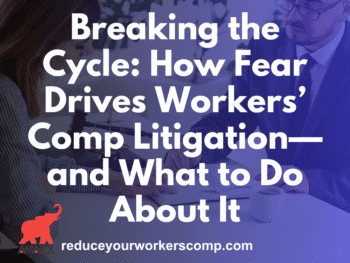How Would You Decide: Injured Subcontactor’s Lawsuit Against Oil Refinery Barred by “Trade or Business” Defense
Here’s what Tom Robinson, J.D., writer for Lexis Nexis Workers Comp Law Center reports.
Here's What Happened
Murphy defended on the grounds that it was immune by virtue of the Louisiana workers' compensation laws. At issue was Louisiana's particular application of the "statutory employer" rule that provides generally that any principal who undertakes to have work performed by a contractor is a "statutory employer" with respect to work that is "a part of" the principal's "trade, business, or occupation" [see La. Rev. Stat. Ann. § 23:1061], and is accordingly immune from civil suit. Berthelot contended his work was not part of Murphy's trade, business, or occupation since the power outage was "confined only to a restricted area" and that the refinery continued to generate "its products, goods or services" during the outage. Murphy disagreed, contending that the work performed by Berthelot was "an integral part of and essential to the ability of Murphy to generate its goods, products or services."
Here's What The Court Decided:
The court reasoned that while there was no contract between Murphy and Berthelot's employer, Ca-Par, there was such an agreement between Murphy and Ordes who, in turn, had contracted with Ca-Par. That agreement specifically recognized Murphy as a statutory employer. Thus, the burden shifted to Berthelot to show his work was not an integral part of Murphy's business. Berthelot contended that his work was not integral or essential to Murphy's business because Murphy itself could not have performed the work—it employed no qualified electricians—and because Murphy continued producing goods and services while the work was performed. The court indicated, however, that whether an employer itself could perform the work did not determine its statutory employer status. The court indicated that working electricity was an essential part of Murphy's day-to-day operations and that Berthelot was performing work to maintain the uninterrupted flow of this electricity to Murphy's equipment. Berthelot conceded that the high voltage transformer on which he was working was connected to Murphy's equipment and that the equipment could not be operated while the work was performed. (workersxzcompxzkit) According to the court, under Louisiana law, this was sufficient to establish that Berthelot's work was essential to or an integral part of Murphy's ability to produce goods, products or services. Workers' compensation benefits were Berthelot's sole remedy as against Murphy.
See generally Larson's Workers' Compensation Law, § 70.06, 111.04.
Tom Robinson, J.D. is the primary upkeep writer for Larson's Workers' Compensation Law (LexisNexis) and Larson's Workers' Compensation, Desk Edition (LexisNexis). He is a contributing writer for California Compensation Cases (LexisNexis) and Benefits Review Board – Longshore Reporter(LexisNexis), and is a contributing author to New York Workers' Compensation Handbook(LexisNexis). Robinson is an authority in the area of workers' compensation and we are happy to have him as a Guest Contributor to Workers' Comp Kit Blog. Tom can be reached at: compwriter@gmail.com. http://law.lexisnexis.com/practiceareas/Workers-Compensation
Podcast/Webcast: How To Prevent Fraudulent Workers' Compensation Claims Click Here http://www.workerscompkit.com/gallagher/podcast/Fraudulent_Workers_
WC Books: http://www.reduceyourworkerscomp.com/workers-comp-books-manuals.php
TD Calculator: www.reduceyourworkerscomp.com/transitional-duty-cost-calculator.php
WC Calculator: http://www.reduceyourworkerscomp.com/calculator.php
Do not use this information without independent verification. All state laws vary. You should consult with your insurance broker or agent about workers' comp issues.



























